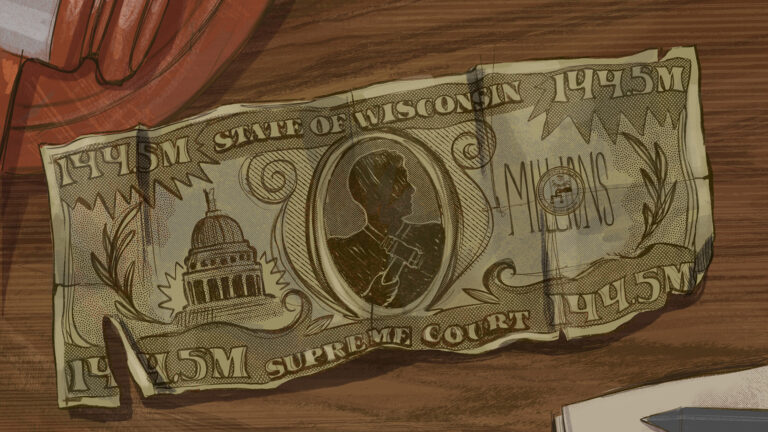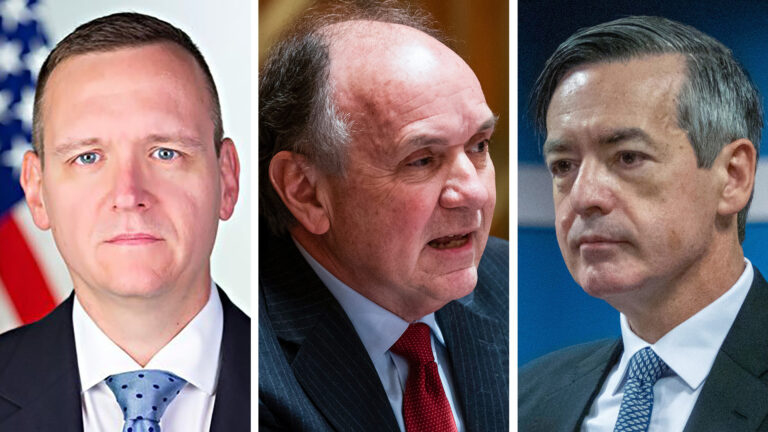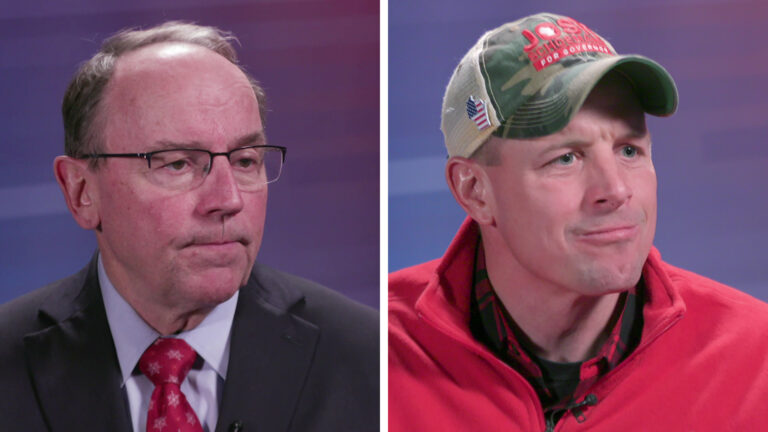Shawn Johnson:
We begin this week with a first look at new fundraising numbers in the primary for governor. Fundraising is key to any campaign and this week candidates were required to publicly release their last financial statements before the August 14th primary. For the month of July, Kelda Roys topped the democratic field raising more than $147,000. Mahlon Mitchell and Tony Evers both raised raised six figures over that same period with $117,000 and $109,000 respectively. Paul Soglin rounds out the top four fundraisers with more than $45,000. Roys also tops the field in money spent during July, spending more than a half million dollars. The top fundraisers, except for Soglin, all spent in the six figures. In the rest of the field, Flynn raised just under $34,000, followed by Mike McCabe, Josh Pade and Kathleen Vinehout. Matt Flynn spent the second most of the democrats, spending more than $280,000 in July. The rest of the field, including Paul Soglin, spent less than $34,000 dollars. On the republican side, Scott walker raised $670,000 in July and spent $1.7 million using money he raised previously. His republican challenger Robert Meyer raised and spent $42 during the same period.
Just days before next week’s primary, we take an inside look at the candidates and the campaigns they’ve waged for governor and U.S. Senate. The last Marquette University Law School polls showed 38% of democratic voters were undecided in the race for governor last month. And 30% of GOP voters were undecided in the race for senate. So on the closing weeks of the campaign, who has stood out and what might decide the races? We’ve asked University of Wisconsin-Milwaukee Political Expert Mordecai Lee to join us with his insights. Mordecai, thanks as always for joining us.
Mordecai Lee:
Thanks for inviting me, Shawn.
Shawn Johnson:
So as we head into the home stretch here, what do you see as the key factors on the democratic side that will produce a winner in this eight-candidate primary?
Mordecai Lee:
What I see as the key factor is what we can’t see. In other words, we often talk about an iceberg: what’s above, what’s below the surface. I think there’s some grass roots, prairie fire going on for some of the candidates that didn’t get picked up by any of the polling. Not because the polling was bad but simply because that below the surface effort is hard to measure. I think we’re going to have some surprises not just because Wisconsin voters love to surprise experts but because I think a couple of those candidates are hot but not measurable.
Shawn Johnson:
You don’t think necessarily think we know who’s going to win that one, that 38% of undecided could break to somebody who’s not at the top of those polls, Tony Evers?
Mordecai Lee:
Exactly. That’s not in any way to criticize his candidacy, but I think it’s reasonable to say that because he’s run statewide before he has a certain amount of name recognition and that he’s the logical frontrunner. But Wisconsin voters don’t like logic necessarily. They sometimes fall in love with somebody and we can’t tell until the night of the primary. So if anybody wanted to bet me on the predictability on Wisconsin voters, I’ll take that bet that they’re unpredictable.
Shawn Johnson:
How much has money played a role in this democratic primary and how much of a role is it going to play in the general election?
Mordecai Lee:
You know it’s really awful that money has to be a factor in campaigns. We believe in democracy. We think that the best candidate ought to be able to communicate and win. But it’s true that TV advertising is enormously expensive. And the reason why I’m thinking there might be an upset on Tuesday is because a candidate who isn’t necessarily in a wall-to-wall TV buy might have so many volunteers going door-to-door this week and knocking on doors, knock and drops, making phone calls that they might be able to negate the importance of money. To a certain extent, I think we’d all like to see success and democracy not measured by money. Now what’s going to happen is whoever wins the primary, the next day they’re going to hit a wall of attack ads from Governor Walker. Governor Walker sort of believes in the Carl Rove school of politics which is attack, attack, attack. And so the question is if the winner in the primary can turn around fast enough, faster than Tommy Thompson did when he won the primary for U.S. Senate six years ago. He sort of went dark. He was raising money for three or four weeks. The key for the democratic winner is not to go dark.
Shawn Johnson:
You think endorsements will matter in this race? Any in particular that stood out to you?
Mordecai Lee:
I think endorsements really make a difference for this below-the-surface kind of campaign. In other words, we all sit in front of the TV set. We all see the kind of TV advertising that’s going on. But if we get a phone call from somebody who says, “You know, I’m voting for so and so and I live right down the block.” Or we get a postcard or any other kind of contact: my brother-in-laws, sister-in-laws, uncle happens to know so and so from college and says so and so’s a really good candidate that, in Wisconsin politics, can make a difference. That’s called the friends and neighbors effect. It’s the word of mouth. And just like some movies can suddenly be successful based on word of mouth, the same thing can happen in politics when you have a relatively low turnout.
Shawn Johnson:
Are there any issues in this primary where democrats have taken a stand on something that maybe they wouldn’t have had they not had that competitive primary? Something that they would end up regretting in the general election campaign?
Mordecai Lee:
It’s possible that’ll happen but I think we can see the primaries as a warm-up round. In other words, a spring season for them to get their lines down, to be ready for any surprises, to know what their positions are. It’ll probably come down to the fact that on Tuesday are people going to vote for who they fell in love with? Or are they going to vote for who they think would be the strongest candidate to beat Governor Walker? That’s a tough decision in terms of primary voters. But the primary turnout might be surprisingly high, in which case even those bets are all off.
Shawn Johnson:
There’s also a senate race on the republican side with two republicans vying for a chance to take on U.S. Senator Tammy Baldwin. How would you sum up the race between state Senator Leah Vukmir and Marine veteran Kevin Nicholson?
Mordecai Lee:
This is the ultimate showdown between, I guess what we’d call the old Wisconsin Republican Party, the Scott Walker Republican Party, conservatives mainstream, versus the Trump Republican Party. So you’ve got two candidates, both of whom are conservative by all measures. Both of whom say they support President Trump but one of them came up through the ranks, sort of the republican establishment. She’s been endorsed by the party. The other one is coming from outside. No prior running record, no prior office holding. So who would the republican primary voters prefer? We have to remember that when President Trump ran in the Wisconsin presidential primary, he lost the primary. But now the party has really had an earthquake. Now the party – 90% of republicans say they support Trump. So I’ll be darned if I can figure out who’s going to win on Tuesday.
Shawn Johnson:
You alluded to this but Leah Vukmir has come up through the ranks throughout her entire political career. She started with a grassroots group. She’s been a legislator. She’s endorsed by the state Republican Party. Paul Ryan, she’s personal friends with Scott Walker. She’s beloved by conservative talk radio in southeast Wisconsin. So how has she not put this thing away?
Mordecai Lee:
I guess this is an indication of what a revolution Mr. Trump has brought to the Republican Party. That somebody who’s never run for office before, is totally unknown, is a contender, is neck and neck. It’s a horse race. They’re nose to nose and because of Trump, we’re viewing candidates from the outside. The ones who say I want to drain the swamp. I’m not part of the establishment. That suddenly is hot. What it might come down to is there might be some voters in the middle on Tuesday. Voters who say, “I really don’t care which of those two is the republican nominee, but it’s more interesting to vote in the democratic primary for governor. So I think we’re going to be seeing some shifting voting patterns. And I think we’re going to be seeing a larger than usual turnout. I think we might see a turnout of 25%, maybe even 30%.
Shawn Johnson:
And just about a minute left here. Kevin Nicholson has embraced this outsider label and talked about running against the establishment. When he’s talking about the establishment here, he’s talking about Paul Ryan. He’s talking about Scott walker who is on the ballot. Can that work in a state like Wisconsin first of all? Does that end up as some republicans have suggested hurting Scott Walker in November?
Mordecai Lee:
Given that President Trump won Wisconsin in the November election versus Mrs. Clinton, that’s an indication that somebody who’s a like-Trump candidate can have a good chance of winning. After all, we used to criticize candidates who said, “Well, we don’t know them. Where did they come from? They came out of nowhere.” Nowadays, that’s a badge of honor and that’s why he’s a contender for that election.
Shawn Johnson:
Mordecai Lee, we need to leave it there. Thank you for joining us.
Mordecai Lee:
Thank you Shawn.
Search Episodes
News Stories from PBS Wisconsin

Donate to sign up. Activate and sign in to Passport. It's that easy to help PBS Wisconsin serve your community through media that educates, inspires, and entertains.
Make your membership gift today
Only for new users: Activate Passport using your code or email address
Already a member?
Look up my account
Need some help? Go to FAQ or visit PBS Passport Help
Need help accessing PBS Wisconsin anywhere?

Online Access | Platform & Device Access | Cable or Satellite Access | Over-The-Air Access
Visit Access Guide
Need help accessing PBS Wisconsin anywhere?

Visit Our
Live TV Access Guide
Online AccessPlatform & Device Access
Cable or Satellite Access
Over-The-Air Access
Visit Access Guide
 Passport
Passport


















Follow Us